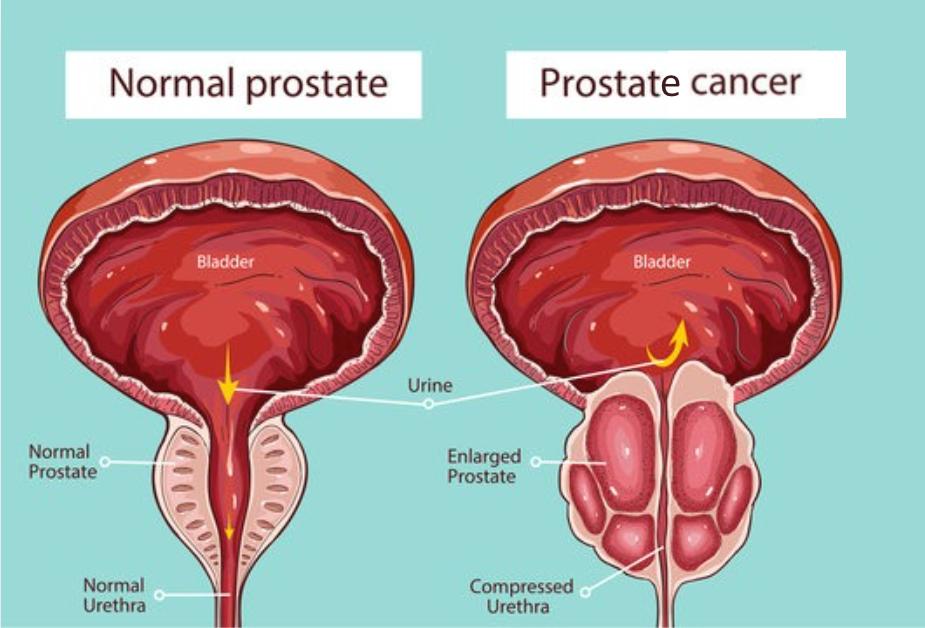11/09/2025
From Avoidance to Action: What It’s Really Like to See a Urologist.

Conversations about prostate health are often met with silence, hesitation, or discomfort among Malaysian men. Despite increasing access to health information, many continue to put off seeing a urologist, especially for prostate-related concerns. The reasons are layered: stigma, uncertainty, fear of invasive procedures, or the assumption that “it’s probably nothing.” But the data tells a different story.
Prostate cancer is now the third most common cancer among Malaysian men, with nearly 70% of cases only detected at advanced stages. Broader gaps in men’s health remain as well, as the Ministry of Health has acknowledged that male health is still underserved in national policy. With men living nearly five years shorter than women on average, the cost of silence speaks volumes.
In response, Sunway Medical Centre Damansara (SMCD) is looking to shift the mindset – starting with a straight-talking look at what actually happens during a urology consultation, and why it’s far less intimidating (and far more important) than most realise.

Fear, Stigma & Silence: Why Do Men Delay Seeing a Urologist?
While women are generally introduced to reproductive health check-ups from a younger age, men are far less likely to engage in routine screenings. Many only seek help once symptoms become disruptive or difficult to ignore. For some, opening up about urinary or prostate health feels uncomfortably personal, while the idea of a physical examination can trigger anxiety or embarrassment.
“I think there is an element of stoicism among men, where health issues are often brushed aside with the belief that they will resolve on their own,” explains Dr. Yeoh Wei Sien, Consultant Urologist at Sunway Medical Centre Damansara. “Many also believe they are not at risk – what we call low perceived susceptibility – so they don’t see their symptoms as abnormal or worth medical attention.
By the time they do start to appear, some would have already turned to the internet for answers, or tested out home remedies or supplements recommended by friends. These approaches might delay proper diagnosis and, in some cases, make the condition worse.”
Cultural expectations also play a role. “Men are often expected to appear strong, which makes talking about health issues such as prostate care harder, as it may seem too personal or uncomfortable,” Dr. Yeoh notes. “Healthcare information is more accessible now, and that is slowly changing attitudes. But taboos around men’s health still persist, and ultimately, the decision to seek treatment rests with the individual.”
What Actually Happens During a Urology Appointment
One of the biggest deterrents for men is simply not knowing what to expect. The term “prostate check” often evokes anxiety, largely because of its association with the digital rectal exam (DRE). Yet, modern urology consultations are far more discreet, professional, and patient-focused than many realise.
Dr. Yeoh explains that a typical appointment begins with a conversation: “We start by asking about symptoms, lifestyle, and general health. If the prostate appears to be the main concern, we then focus on urinary patterns and risk factors. If necessary – and always with the patient’s consent – a physical exam may be performed, which can include a rectal exam to assess the size and consistency of the prostate gland.”
While the DRE remains a useful diagnostic tool, Dr. Yeoh reassures that it is not as daunting as they fear. “During an appointment, we always explain what will happen beforehand, and keep the process as quick and gentle as possible. Most patients even walk away saying it wasn’t nearly as uncomfortable as they had imagined.”
Importantly, prostate care today extends well beyond physical exams. Depending on the case, doctors may recommend lab tests, imaging, or specialised assessments. “Besides just diagnosis, the goal is to build trust - and having a rapport with patients certainly helps,” Dr. Yeoh adds. “We place great emphasis on comfort, privacy, and open communication at every step.”
Rethinking Prostate Care
For years, prostate health was treated as an isolated issue. Yet the prostate is closely linked to broader aspects of men’s health – from urinary function to sexual performance.
“The prostate is part of the reproductive system. While treatment for prostate enlargement can sometimes lead to erectile dysfunction (ED), not all ED is prostate-related,” says Dr. Yeoh “Many men know the prostate affects urination and reproduction, but they don’t always understand how it connects to overall health and quality of life. Problems with the prostate could lead to the infection of other bodily systems, if left untreated.” Early warning signs should not be ignored, he adds. “Slow urination, recurrent infections, waking up too often at night to void, or seeing blood in the urine are all reasons to seek consultation.”
Encouragingly, urology care itself has evolved. According to Dr Yeoh, medications are now more specific with fewer side effects, while surgical options are increasingly minimally invasive. Expanding on this, he places emphasis on how patient conversations around masculinity, intimacy, and vulnerability are being handled with more openness and sensitivity.
Making Prostate Care Part of the Conversation
Ultimately, prostate care goes beyond just getting diagnosed – it’s about empowering men to take charge of their health. Through public education and open dialogue, urology experts at SMCD aim to normalise conversations around prostate health and encourage proactive care.
“Malaysia currently has no national prostate cancer screening programme,” says Dr. Yeoh. “However, men aged 45 to 50 – especially those with a family history – should consider early testing if they are otherwise healthy and expected to live another 10 years or more.”
To those holding back out of fear or embarrassment, his advice is simple: “Prostate diseases can be treated. The earlier it’s diagnosed, the more options we have – often with minimal disruption to daily life. Early detection gives the best chance for effective treatment or even cure. Waiting too long can mean more intensive treatment, or missing that window altogether.”
A quick check-up today could make all the difference tomorrow. Visit Sunway Medical Centre Damansara’s website to learn more or book a consultation.
Back


